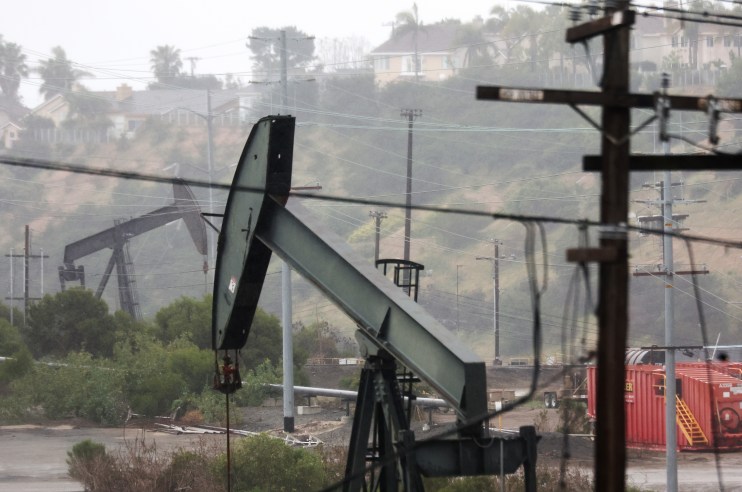Oil prices remain elevated as US refineries ramp up processing while EU edges toward embargo

Oil prices rose slightly on Wednesday, buoyed by US refinery processing levels and growing expectations of a European Union (EU) ban on Russian imports.
Both major benchmarks remained elevated from tight supplies, as US refineries powered processing activity to their highest level since before the coronavirus pandemic started.
Brent Crude prices increased 0.28 per cent to $113.90 per barrel, while WTI Crude prices climbed 0.41 per cent to $110.20 per barrel.
US crude stockpiles fell one million barrels last week, with gasoline inventories also dipping.
Refiners picked up the pace of processing, boosting capacity use to 93.2 per cent, its highest since December 2019.
They have had to keep facilities running at full-tilt to deal with rebounding post-pandemic demand, especially from overseas, as refined product exports rose to more than 6.2m barrels per day last week.
From a global perspective, crude supplies have continued to tighten as buyers avoid oil from Russia, the world’s second-largest exporter, after the country’s invasion of Ukraine.
There are also reports of difficulties procuring insurance from Western underwriters for Russian crude supplies, with financiers wary of inadvertently breaching sanctions.
Even without a legal ban, self-sanctioning by numerous European companies has led to a record amount of Russia’s Urals crude oil sitting in vessels at sea as it struggles to find buyers.
The European Council’s President Charles Michel hopes the EU can agree a sixth package of sanctions on the Kremlin before its next meeting.
This package would include a ‘phase out’ of Russian oil imports, although Hungary is continuing to hold out, and is pushing for compensation to make up for a loss in oil supplies.
As for developments that could weigh down prices, world’s biggest oil importer China maintained its highly authoritarian approach to the Covid-19 pandemic.
The capital Beijing has imposed new curbs while Shanghai plans to keep most restrictions in place this month.
Craig Erlam, senior market analyst at OANDA said: “Oil prices are continuing to consolidate around the upper end of their trading range over the last couple of months. Concerns about Covid cases in Beijing and global growth are continuing to prevent a much larger rally in oil prices as a result of the undersupply in the market, a potential EU ban on Russian imports and the reopening in Shanghai.”
“Risks still remain tilted to the upside, even after the recent moves, but it just may not be as explosive as we’ve seen at times before.”
Commerzbank analysts Barbara Lambrecht and Carsten Fritsch expect prices to ease in the second half of the year, expecting demand to be met by sufficient supplies.
They said: “Oil prices have calmed down after the sharp rise at the beginning of the war in Ukraine. This is because Russian oil supply is not falling as much due to robust purchases by India and demand is rising less dynamically than expected as a result of the corona lockdowns in China.”
“Moreover, the release of strategic oil reserves is bringing additional oil to the market. The oil market should therefore be sufficiently supplied in the second half of the year. We expect the price of Brent oil to fall to USD 95 per barrel by the end of the year.”